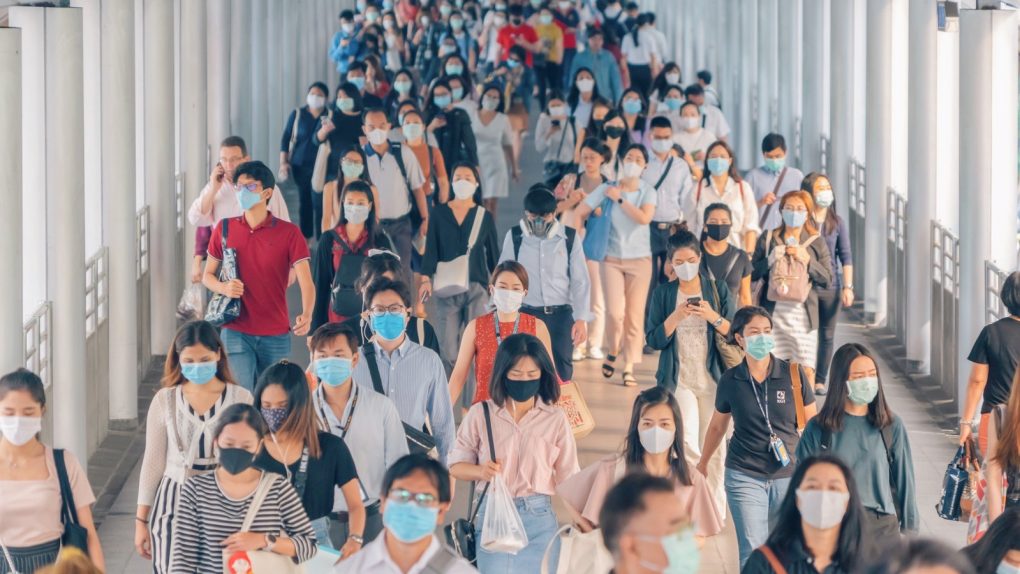- The first study of the UK coronavirus mutation that’s spreading rapidly right now warns that stricter safety measures might be required to prevent another massive outbreak.
- Computer models indicated that the virus might be 56% more infectious than other strains. The new mutation isn’t causing more severe illness, however.
- Researchers warn that schools may need to be closed in order to buy Britain more time. They also say vaccination campaigns must be accelerated to reduce the spread of the virus.
When the UK’s prime minister announced last weekend that the coronavirus mutation discovered recently might be 70% more infectious than other strains, some experts questioned the estimate, saying that more data is required to determine the strain’s potential danger. Many European countries imposed bans on UK travel to reduce the risk of the B.1.1.7 strain traveling to the rest of the EU region. The mutation carries a collection of 17 genetic changes, a first for noteworthy coronavirus mutations. While it might not cause more severe cases of COVID-19, these mutations might make it more infectious. Some health experts even warned that the changes could make existing vaccines less effective, although many others said there are no such concerns. The consensus was that more research was required to determine the path forward. The novel strain should be tested in labs to determine how infectious it really is and whether it can evade neutralizing antibodies generated after vaccines.
The first study of the new coronavirus strain is now here, and it tells the world that the threat might be serious. Stricter measures, including the closing of schools and universities, as well as accelerated vaccination campaigns, might be required to prevent the B.1.1.7 epidemic from getting out of hand.
The study comes from the Center for Mathematical Modeling of Infectious Diseases at the London School of Hygiene and Tropical Medicine, and it was published online in preprint form. The scientists found that the UK mutation is 56% more contagious than the other versions circulating in the country, and it will require additional measures to contain. The 56% estimate is still rough, as the researchers are gathering more data. The study found no evidence that the virus was more lethal than other strains, which is at least some good news.
“It may be necessary to greatly accelerate vaccine rollout,” Nicholas Davies, lead author of the study, told The New York Times. “The preliminary findings are pretty convincing that more rapid vaccination is going to be a really important thing for any country that has to deal with this or similar variants.”
The scientists did not study the virus’s behavior in lab tests but used computer models to predict the severity of the pathogen. Their tests ruled out the possibility of the B.1.1.7 strain having become prevalent in some UK regions because people in those places move more than others and are likely to come in contact with more people. The scientists also modeled what might happen over the next six months and built models using various restriction levels. “Cases, hospitalizations, ICU admissions and deaths in 2021 may exceed those in 2020,” without a substantial vaccination campaign. The UK has registered nearly 2.2 million cases so far this year, including almost 70,000 deaths.
Researchers said that closing schools until February could buy the country some time. Lifting the restrictions would lead to a major spike in cases.
A vaccination model where 200,000 people are vaccinated each week showed the pace would be too slow to impact the spread of the mutated virus. “That kind of pace wouldn’t really be able to support much relaxation of any of the control measures,” Davies said. If weekly vaccinations reach 2 million, COVID-19 transmission could drop. But vaccine supply is still low and it will take a while for immunization campaigns to ramp up. Even once enough supply is available, it’s unclear whether the country can ramp up vaccinations to 2 million a week.
Like any other COVID-19 study, this study could benefit from additional data, and it might have limitations that impacted the models. A few experts who analyzed the study for The Times pointed out some potential issues, including the assumption that people younger than 20 had a 50% chance of spreading the illness. But even those researchers made it clear that the mutation must be taken seriously or it could lead to another severe outbreak.
The full study is available at this link.








